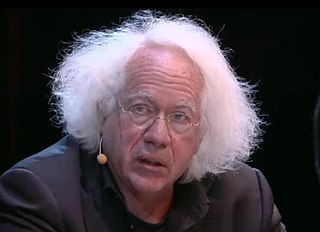A Quote by Leon Wieseltier
There are moral religious people and moral secular people, immoral religious people and immoral secular people.
Related Quotes
The targets of this story are not wayward sinners but religious people who do everything the Bible requires. Jesus is pleading not so much with immoral outsiders as with moral insiders. H wants to show them their blindness, narrowness, and self righteousness, and how these things are destroying both their own souls and the lives of the people around them.
A comprehensive doctrine, either religious or secular, aspires to cover all of life. I mean, if it's a religious doctrine, it talks about our relation to God and the universe; it has an ordering of all the virtues, not only political virtues but moral virtues as well, including the virtues of private life, and the rest. Now we may feel philosophically that it doesn't really cover everything, but it aims to cover everything, and a secular doctrine does also.
There has been a religious revival because - let me put it like this, the people that weren't traditionally religious, conventionally religious, had a religion of their own in my youth. These were liberals who believed in the idea of progress or they were Marxists. Both of these secular religions have broken down.
In contemporary society secular humanism has been singled out by critics and proponents alike as a position sharply distinguishable from any religious formulation. Religious fundamentalists in the United States have waged a campaign against secular humanism, claiming that it is a rival "religion" and seeking to root it out from American public life. Secular humanism is avowedly non-religious. It is a eupraxsophy (good practical wisdom), which draws its basic principles and ethical values from science, ethics, and philosophy.
Why is it immoral for you to desire, but moral for others to do so? Why is it immoral to produce a value and keep it, but moral to give it away? And if it is not moral for you to keep a value, why is it moral for others to accept it? If you are selfless and virtuous when you give it, are they not selfish and vicious when they take it?




































